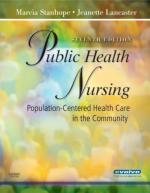|
This section contains 6,433 words (approx. 22 pages at 300 words per page) |

|
As a topic, population refers to the size and composition of social groupings and the dynamics of change in these characteristics. It extends to the determinants and consequences of levels, differentials, and changes in fertility, mortality, and spatial distribution. Within the social sciences, population study has a broad concern with the cultural, social, economic, and psychological causes and consequences of these characteristics (see Hauser and Duncan 1959; Coleman and Schofield 1986; Stycos 1987; Namboodiri 1988). Within sociology, the main concern is with linkages between social institutions and the dynamics of population change and equilibrium (see Taeuber, Bumpass, and Sweet 1978; Nam 1994; Greenhalgh 1996). Demography is an important component of population study that focuses on data collection, measurement, and description. (Though it would be impossible to cite all articles relevant to the general topic of population, a number of useful articles are cross-referenced at the end of this article.)
Overview of Population History
A brief...
|
This section contains 6,433 words (approx. 22 pages at 300 words per page) |

|


